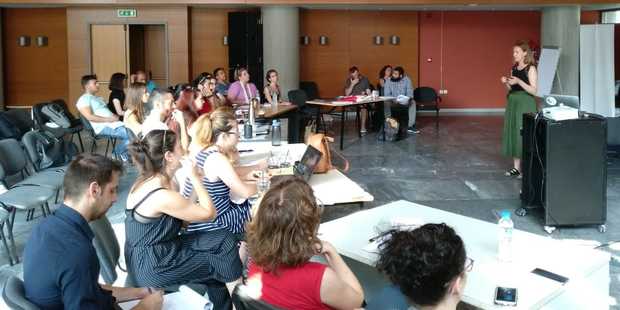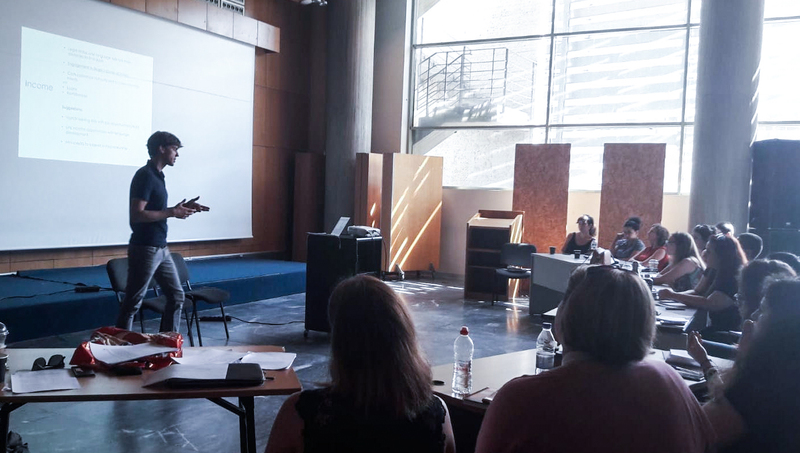Establishing a joint interpretation of the displacement situation among relevant actors is a precondition for a more coordinated and targeted response. Failing to correctly understand and interpret the data collected through a profiling exercise might mean quashing the whole process, and ending up preventing future collaboration among partners. A rigorous process of collaboration throughout a profiling exercise is therefore key to ensure shared interpretation.
As experience shows, joint analysis is a time-consuming and challenging process, but the alternative is lack of shared reference and scarce understanding of the situation among different stakeholders. In order to work properly, joint analysis requires all relevant actors to engage in the process, and it is therefore prominent, for us, to improve and strengthen analysis capacity and skills within the humanitarian sector.
Today, this represents a conspicuous part of our work and, in light of this, we recently supported and participated to ACAPS’ Humanitarian Analysis Programme (HAP), a training aimed at building relevant actors’ ability to analyse existing and new data sources more systematically, rigorously and jointly. The tools and materials produced for that training have recently been used to kick-start the analysis phase of the Thessaloniki urban profiling exercise.

At JIPS, we never get tired of stressing how important collaboration among relevant stakeholders is: a profiling exercise is simply not feasible if relevant actors do not commit to it. However, no collaboration can be truly effective if partners do not trust each other, therefore building trustbecomes a priority, and is something that needs to be addressed from the very beginning of the profiling process (way before the joint analysis phase).
At the beginning of a profiling process, a joint workshop might be useful to define the common goal and to agree on a common set of indicators and the methods to acquire data. Towards the end of a profiling, joint activities can include joint interpretation and analysis (to answer the question on what data is telling us), joint validation (to establish if data correctly represent the reality), joint decision-making (to decide what to do with the results).
The idea is that the more often stakeholders come together to discuss data and results, the more knowledge and ownership it creates and the more likely it is that the data will be used in all its variety and richness.
By bringing partners together to jointly discuss the meaning of data, joint analysis becomes a mediation tool, which can foster mutual understanding and willingness to compromise. Joint activities provide participants with the opportunity to exchange information and opinions and to contribute to and shape the whole process. In a wider sense, it bears the opportunity for opening mindsets and developing a sense of collective ownership and responsibility.
Careful planning and meaningful facilitation are key elements of this process. When preparing a joint activity, it is important to clarify what the objective of that activity is, what the concrete outcomes should be, and what circumstances might come up that could divert the activity from its goal. Carefully planning the joint activities entails a timely outreach to relevant stakeholders, with the setting of a clear agenda and goals. Often, holding bilateral meetings with key stakeholders in advance can ensure a smoother joint activity and help inform the planning and approach.
Meaningful facilitation is crucial during the joint activity in order to guide the discussion and channel different perspectives and opinions towards the common goal, while at the same time allowing for creativity and openness to different and new ideas. Facilitating the discussion of a group of 20-30 humanitarians, social workers, government representatives and other individuals –each one with their own perspectives and objectives- requires the establishment of a clear, and common, goal, so that all ideas and suggestions can be evaluated depending on their ability to achieve this goal.

In order to ensure a joint interpretation of the data just collected in the urban profiling exercise in Thessaloniki, our colleagues Margharita Lundkvist-Houndoumadi, Kari Fyhn and Svend-Jonas Schelhorn supported the planning and facilitation of a joint analysis workshop. The aim of the workshop was to bring all profiling partners together in order to:
Prior to the workshop, consultations with surveyed communities took place, with the aim of validating and complementing some of the key survey results. Feedback and recommendations from the community consultations were presented at the workshop, along with the preliminary findings from the household survey.
This process allowed the profiling exercise partners to consolidate the interpretation of key findings and jointly agree upon the subsequent direction of the analysis, which necessarily has to address the information needs of all partners. It is worth highlighting, at this point, that a constructive discussion on the results would not have been feasible if all actors had not already felt “responsible” for the process and the outcome, having being involved in it from the very beginning.